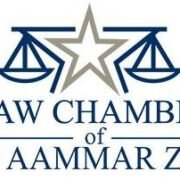Best Creditor Lawyers in Kolkata
Share your needs with us, get contacted by law firms.
Free. Takes 2 min.
List of the best lawyers in Kolkata, India
About Creditor Law in Kolkata, India:
Creditor law in Kolkata, India refers to the legal framework that governs the rights and responsibilities of individuals or entities who lend money or extend credit to others. It involves various aspects such as loan agreements, debt recovery, insolvency, and foreclosure. Understanding the creditor laws in Kolkata is crucial for both creditors and borrowers to ensure fair and legal practices are followed.
Why You May Need a Lawyer:
There are several situations in which you may require the assistance of a lawyer specializing in creditor law in Kolkata. These may include:
- Debt Recovery: If you are facing difficulties in recovering money owed to you by a debtor, a lawyer can help initiate legal action, negotiate settlements, or advise you on the best course of action.
- Loan Documentation: When entering into a loan agreement, it is essential to have a lawyer review and draft the terms and conditions to protect your interests.
- Debt Restructuring: If you or your business is struggling with debt, a lawyer can guide you through the process of restructuring, negotiating with creditors, or exploring bankruptcy options.
- Foreclosure: If you need to foreclose on a property due to non-payment of a loan, a lawyer can assist you in navigating the legal procedures and ensure compliance with the applicable laws.
- Legal Disputes: If you find yourself involved in a legal dispute related to creditor matters, a lawyer can provide legal advice, represent you in court, and help protect your rights.
Local Laws Overview:
In Kolkata, India, the key aspects of local laws that are particularly relevant to creditor matters include:
- The Indian Contract Act, 1872: This act governs the contractual relationship between lenders and borrowers, establishing the enforceability of loan agreements and terms.
- The Securitization and Reconstruction of Financial Assets and Enforcement of Security Interest (SARFAESI) Act, 2002: This act enables financial institutions to recover defaulted loans secured by assets through specific legal procedures.
- The Insolvency and Bankruptcy Code (IBC), 2016: This code provides a unified framework and time-bound process for insolvency resolution and bankruptcy proceedings.
- The Limitation Act, 1963: This act sets the time limit within which a creditor can file a lawsuit to recover outstanding debts.
- The Code of Civil Procedure (CPC), 1908: This code outlines the procedures for civil litigation, including debt recovery cases filed in civil courts.
Frequently Asked Questions:
Q1: Can I take legal action against a debtor who defaults on their loan payment?
A1: Yes, you can take legal action against a debtor who defaults on their loan payment. This typically involves sending a legal notice, filing a recovery suit in a civil court, and presenting evidence to support your claim.
Q2: What are the consequences of non-payment of a loan in Kolkata, India?
A2: Non-payment of a loan can have consequences such as legal action by the creditor, damage to your credit score, potential seizure of assets, and difficulty in obtaining future loans or credit.
Q3: Can a creditor force the sale of a property to recover their debt?
A3: Yes, a creditor may have the right to force the sale of a property to recover their debt if there is a valid mortgage or a charge on the property. However, the legal process must be followed, and the creditor cannot take possession of the property without a court order.
Q4: What are the alternatives to bankruptcy for debtors in Kolkata?
A4: Alternatives to bankruptcy for debtors in Kolkata include debt restructuring, negotiation with creditors for loan repayment plans, and exploring options such as loan settlements or consolidation.
Q5: How long does a creditor have to file a lawsuit to recover a debt?
A5: The time limit for a creditor to file a lawsuit to recover a debt is generally three years from the date when the debt became due as per the Limitation Act, 1963. However, this may vary depending on the specific circumstances and nature of the debt.
Additional Resources:
If you need further assistance or information regarding creditor law in Kolkata, India, consider contacting the following resources:
- West Bengal State Legal Services Authority (WBSLSA)
- Kolkata Bar Association
- National Company Law Tribunal (NCLT), Kolkata Bench
- Reserve Bank of India (RBI)
Next Steps:
If you require legal assistance in creditor matters in Kolkata, India, follow these steps:
- Gather all relevant documents and information related to your case.
- Consult with a lawyer specializing in creditor law to discuss your situation.
- Provide the lawyer with the necessary details and documents for them to assess your case.
- Follow the legal advice given by your lawyer and cooperate with them throughout the legal process.
- Maintain open communication with your lawyer and keep them updated on any developments or changes regarding your case.
- Attend any required court proceedings or meetings as advised by your lawyer.
- Closely review any agreements or settlements proposed by the opposing party and consult your lawyer before making decisions.
- Keep records of all communication, legal documents, and financial transactions related to your case.
Lawzana helps you find the best lawyers and law firms in Kolkata through a curated and pre-screened list of qualified legal professionals. Our platform offers rankings and detailed profiles of attorneys and law firms, allowing you to compare based on practice areas, including Creditor, experience, and client feedback.
Each profile includes a description of the firm's areas of practice, client reviews, team members and partners, year of establishment, spoken languages, office locations, contact information, social media presence, and any published articles or resources. Most firms on our platform speak English and are experienced in both local and international legal matters.
Get a quote from top-rated law firms in Kolkata, India — quickly, securely, and without unnecessary hassle.
Disclaimer:
The information provided on this page is for general informational purposes only and does not constitute legal advice. While we strive to ensure the accuracy and relevance of the content, legal information may change over time, and interpretations of the law can vary. You should always consult with a qualified legal professional for advice specific to your situation.
We disclaim all liability for actions taken or not taken based on the content of this page. If you believe any information is incorrect or outdated, please contact us, and we will review and update it where appropriate.













